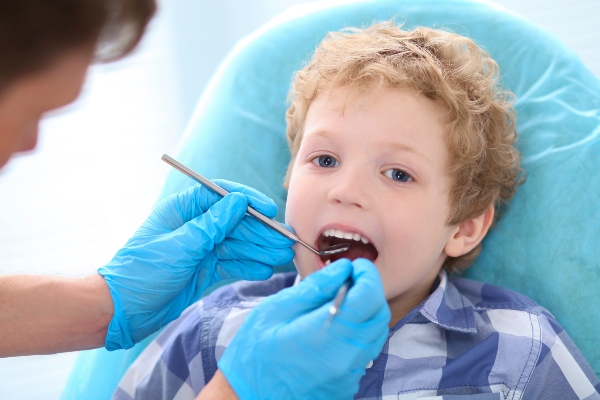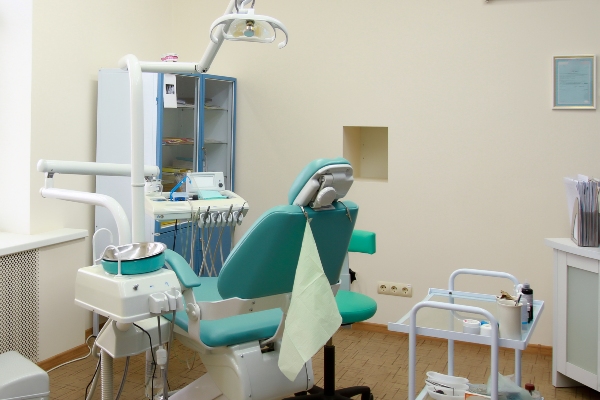 Toothaches are commonplace for children and adults alike, but you should still contact your
pediatric dentistry office if your child complains of one. This is especially true if the oral pain is:
Toothaches are commonplace for children and adults alike, but you should still contact your
pediatric dentistry office if your child complains of one. This is especially true if the oral pain is:
- Sudden
- Unexplained
- Chronic or reoccurring
- Worsens with time
- Continues for more than a day
- Accompanied by other symptoms, such as bleeding, inflammation, oozing, or fever
A dentist can help you get to the root of the problem, addressing your child's discomfort and oral health.
Common causes of tooth pain
It is important to note that some minor pain, irritation, and bleeding with a loose or erupting tooth are normal. These should subside on their own and improve over time. However, other sources of tooth pain may require treatment.
Gum inflammation
Failure to brush and floss well can leave behind food particles that collect bacteria and form plaque. This type of buildup can be irritating to the gums and may lead to inflammation, resulting in redness, swelling, minor bleeding, and pain. Brushing and flossing more carefully on a daily basis can alleviate gum inflammation. However, if it does not improve in a few days with good oral hygiene, it could indicate gum disease that requires professional treatment.
Tooth decay
One of the most common causes of oral pain in children is tooth decay. The erosion of the enamel coating of a tooth can lead to sensitivity and pain. Hot, cold, or sugary foods can worsen this pain. A simple filling usually remedies the situation, although severe decay may require a dental crown.
Injury
Not all dental injuries are easy to spot if they occur toward the back of the mouth. A tooth can become damaged not only by a strong or sudden impact but also from untreated tooth decay. Taking your child to a pediatric dentistry office to have the teeth examined and repaired can alleviate the pain while protecting teeth from more damage down the road.
Infection
Another cause of oral pain is a developing infection. In these situations, the pain tends to be a steady but intense ache rather than an infrequent sharp sensation. Tooth pain caused by an infection is usually accompanied by other symptoms, such as swelling, oozing, and increased warmth in the affected area. If you think your child may have a dental infection, it is important to make an appointment with a dentist as soon as possible.
Treatments for tooth pain in children
Tooth pain caused by decay or infection usually improves after the necessary dental work and treatment are complete. Your dentist may suggest or prescribe pain medications in some situations so be sure to follow the dosage instructions with care. More often, oral pain in children is treated with cold compresses, salt water rinses, a soft food diet, and limiting hot, cold, or sweet foods and drinks.
Conclusion
Much of the time, tooth pain in children is an easy fix. Other times, it requires prompt treatment from a pediatric dentistry professional to protect your child's health. Call your dentist to determine if and when your child needs to be seen for oral pain.
Request an appointment or call Precision Orthodontics & Pediatric Dentistry at 703-391-8800 for an appointment in our Reston office.
Recent Posts
Dental care for children often requires unique approaches tailored to their developing dentition and growing independence, and one type of care that they can receive is pediatric dental X-rays. However, parents often wonder whether exposing young children to X-rays is more harmful than helpful, so it is common to have questions about this type of…
A kid friendly dentist has many important jobs in your child’s oral wellness. Aside from cleaning your child’s teeth at semiannual appointments, the dentist will check on jaw and bite issues. As your son or daughter gets older, the dentist will also check on how the permanent teeth are coming in. There are ways the…
Cavity treatment for kids can help children maintain their long-term oral health. Tooth decay in children can lead to discomfort, infection, and long-term dental complications if left untreated. Fortunately, early detection and appropriate pediatric dental care can prevent complications and support healthy oral development as children grow up.Cavities develop when bacteria in the mouth feed…


